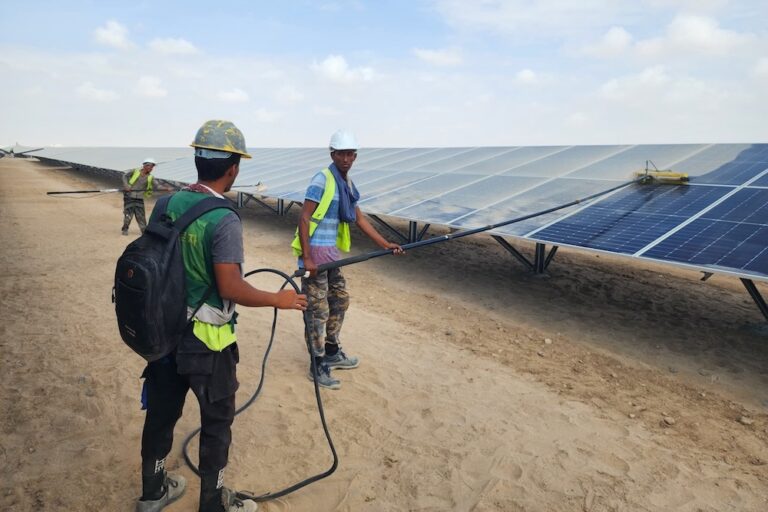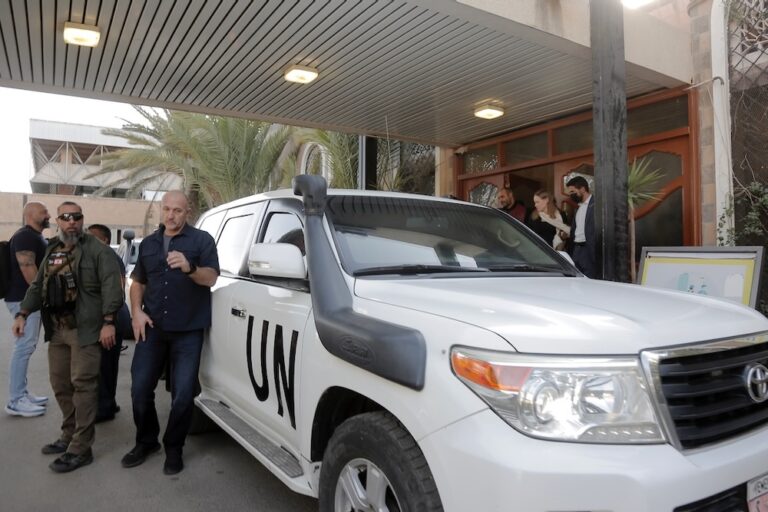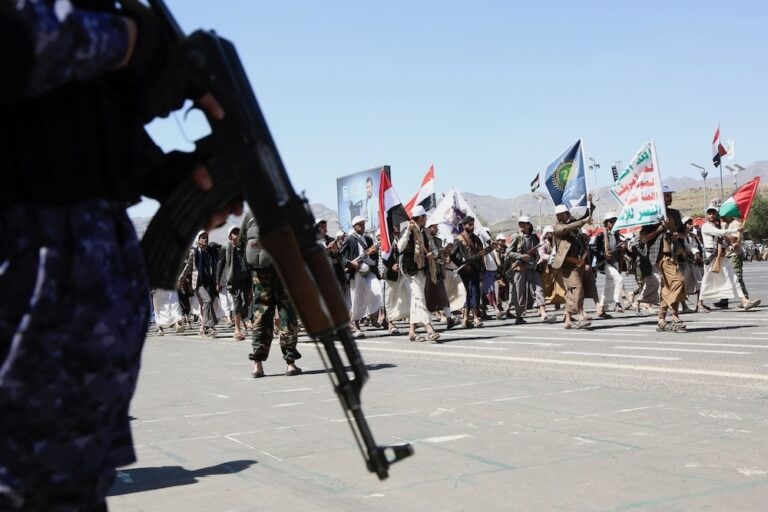“The Houthis' closure of organizations comes in the midst of a campaign of arrests and enforced disappearances of activists, political opposition figures and journalists.”
This statement was originally published on hrw.org on 13 December 2015.
Houthi authorities in Yemen have closed several dozen nongovernmental organizations and arbitrarily detained numerous activists since taking over the capital, Sanaa, in late 2014, Human Rights Watch said today. Human Rights Watch interviewed activists with four Sanaa-based organizations that the Houthis closed down in April 2015, apparently because of their links to the Islah political party, which is opposed to the Houthis.
The Yemen office of the United Nations Office of the High Commissioner for Human Rights told Human Rights Watch that since September 2014, the Houthis, also known as Ansar Allah, have raided and shut down 33 groups in Sanaa, in many cases confiscating assets and equipment. Most of these groups have been prevented from reopening, particularly those affiliated with Islah, the high commissioner’s office said.
“The Houthis’ closure of organizations comes in the midst of a campaign of arrests and enforced disappearances of activists, political opposition figures and journalists,” said Joe Stork, deputy Middle East director at Human Rights Watch. “This is one more repressive Houthi tactic to close down democratic space in the areas they control.”
The Houthis should immediately allow nongovernmental groups to operate freely, compensate groups whose offices were looted, and release activists being detained for peaceful conduct, Human Rights Watch said. While Houthi authorities may take appropriate measures to address security concerns during the armed conflict in Yemen, international human rights law protects basic rights.
Three of the organizations whose closing Human Rights Watch documented remain shut, and three staff members from two of them were briefly detained. Heads of other organizations that were shut down declined to speak to Human Rights Watch, fearing further retribution. Houthi authorities closely monitored the movements of Human Rights Watch staff conducting interviews in Sanaa in late October 2015.
Of the four cases that Human Rights Watch documented, one was affiliated with Islah and the three others had some staff members who belonged to the party. Houthi forces demanded entry to the groups’ premises and stationed guards at the entrances. The Houthis detained, without charge, the director of the Sanaa branch of the Islah-affiliated Charitable Society for Social Welfare for one week, and two guards working for the Chastity and Piety Social Charity Committee, one for a day and the other for four days. All four individuals said that the Houthis had looted their offices. The Charitable Society for Social Welfare was permitted to reopen in July, but the authorities prevented the other groups from reopening, stationing armed guards at their premises for varying periods.
In April, shortly after Islah publicly endorsed the Saudi-led coalition airstrikes against the Houthis that began on March 26, Houthi forces detained without charge, and in some cases forcibly disappeared, more than 100 Islah members, international media reported. Among those taken into custody was Muhammad Qahtan, 57, an Islah leader, on April 4. His family still has no information about his whereabouts or well-being.
Human Rights Watch also documented the Houthis’ enforced disappearance of Abd al-Kader al-Guneid, a physician and human rights activist, in Taizz, on August 5. The Houthis have yet to provide his family any information about his whereabouts or situation.
In November, Houthi officials barred Dr. Shafiqa al-Wahsh, director of the quasi-governmental Women’s National Committee, from traveling outside the country so she could attend preparatory Yemeni peace talk meetings in the region.
“The Houthis have been running Sanaa for a year and should demonstrate respect for basic rights and freedoms like any other ruling authority,” Stork said.
For more information on the nongovernmental organizations whose closing Human Rights Watch has documented, click here.


